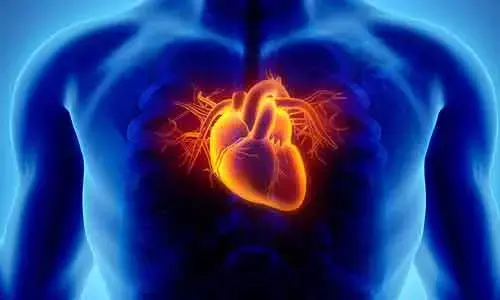- Home
- Medical news & Guidelines
- Anesthesiology
- Cardiology and CTVS
- Critical Care
- Dentistry
- Dermatology
- Diabetes and Endocrinology
- ENT
- Gastroenterology
- Medicine
- Nephrology
- Neurology
- Obstretics-Gynaecology
- Oncology
- Ophthalmology
- Orthopaedics
- Pediatrics-Neonatology
- Psychiatry
- Pulmonology
- Radiology
- Surgery
- Urology
- Laboratory Medicine
- Diet
- Nursing
- Paramedical
- Physiotherapy
- Health news
- Fact Check
- Bone Health Fact Check
- Brain Health Fact Check
- Cancer Related Fact Check
- Child Care Fact Check
- Dental and oral health fact check
- Diabetes and metabolic health fact check
- Diet and Nutrition Fact Check
- Eye and ENT Care Fact Check
- Fitness fact check
- Gut health fact check
- Heart health fact check
- Kidney health fact check
- Medical education fact check
- Men's health fact check
- Respiratory fact check
- Skin and hair care fact check
- Vaccine and Immunization fact check
- Women's health fact check
- AYUSH
- State News
- Andaman and Nicobar Islands
- Andhra Pradesh
- Arunachal Pradesh
- Assam
- Bihar
- Chandigarh
- Chattisgarh
- Dadra and Nagar Haveli
- Daman and Diu
- Delhi
- Goa
- Gujarat
- Haryana
- Himachal Pradesh
- Jammu & Kashmir
- Jharkhand
- Karnataka
- Kerala
- Ladakh
- Lakshadweep
- Madhya Pradesh
- Maharashtra
- Manipur
- Meghalaya
- Mizoram
- Nagaland
- Odisha
- Puducherry
- Punjab
- Rajasthan
- Sikkim
- Tamil Nadu
- Telangana
- Tripura
- Uttar Pradesh
- Uttrakhand
- West Bengal
- Medical Education
- Industry
Hypogonadism tied to higher risk of heart disease in diabetic men: Study

Kota, Rajasthan: A recent study has pointed out that male patients with type 2 diabetes (T2D) and hypogonadism are at a higher risk of coronary artery disease than males with T2D and eugonadal status. The study findings appear in the Journal of the Association of Physicians of India.
The researchers add that there is definite evidence that low levels of testosterone are tied to increased risk of cardiovascular disease in non-diabetic male patients. Also, testosterone replacement therapy in men with androgen deficiency is associated with a lower risk of cardiovascular outcomes. There was a reduction in sudden cardiac death, revascularization, acute MI, unstable angina, and all-cause mortality in hypogonadal patients who have ever taken testosterone treatment.
Type 2 diabetes is a chronic condition in which insulin hormone is not effectively utilized in the way that it should. Its prevalence has rapidly increased rapidly around the world and is said to affect 463 million people (20-79 years) and the number is estimated to reach approx 700 million by 2045.
T2D is accompanied by several complications including macrovascular (cardiovascular and cerebrovascular), microvascular (neuropathy, nephropathy, and retinopathy), and skin complication. Apart from these, patients with diabetes have several other complications such as those related to hypogonadism, and are often overlooked. Male hypogonadism is a medical condition that results from either an absent or inadequate and impaired secretion of hypothalamic gonadotropin-releasing hormone (GnRH) or of pituitary gonadotropins (follicular stimulating hormone and luteinizing hormone [LH]) or, finally, from a testicular deficiency in sex steroid/sperm production.
Previous studies have shown hypogonadism as a risk factor for coronary artery disease, but no such has been done in patients with type 2 diabetes. In a cross-sectional study, Manoj Saluja, Government Medical College, Kota, Rajasthan, and colleagues looked at the traditional risk factors for coronary artery disease and quantitatively establish hypogonadism as a potential risk factor for coronary artery disease in male patients with T2D.
The study included 100 patients with type 2 diabetes mellitus (50 each with hypogonadism and 50 with eugonadism). The researchers then obtained their biochemical parameters and looked for the prevalence of co-morbid conditions. A correlation of serum testosterone with each quantitative variable using Pearson's Coefficient of correlation and multivariable logistic regression analysis was applied.
Based on the study, the researchers found the following:
- Serum testosterone levels were found to be correlated with age, waist circumference, fasting blood sugar, serum triglycerides and eGFR.
- The prevalence of coronary artery disease was higher in T2DM male patients with hypogonadism as compared eugonadal patients.
- The researchers found a higher odds (1.33 times) for coronary artery disease in male patients with hypogonadism and T2DM as compared to males with T2DM and eugonadism.
"In our study testosterone was found to be a risk factor for coronary artery disease in men with T2DM in our study by calculating the odds ratio (1.33) for CAD in T2DM males with hypogonadism as compared eugonadal males," wrote the authors.
The researchers add that further research is needed for testosterone replacement therapy in males with type 2 diabetes with androgen deficiency in relation to prevention of coronary artery disease.
Reference:
The study titled, "Low Serum Testosterone Levels in Male Patients with Type 2 Diabetes Mellitus as a Risk Factor for Coronary Artery Disease," is published in the Journal of the Association of Physicians of India.
Dr Kamal Kant Kohli-MBBS, DTCD- a chest specialist with more than 30 years of practice and a flair for writing clinical articles, Dr Kamal Kant Kohli joined Medical Dialogues as a Chief Editor of Medical News. Besides writing articles, as an editor, he proofreads and verifies all the medical content published on Medical Dialogues including those coming from journals, studies,medical conferences,guidelines etc. Email: drkohli@medicaldialogues.in. Contact no. 011-43720751


